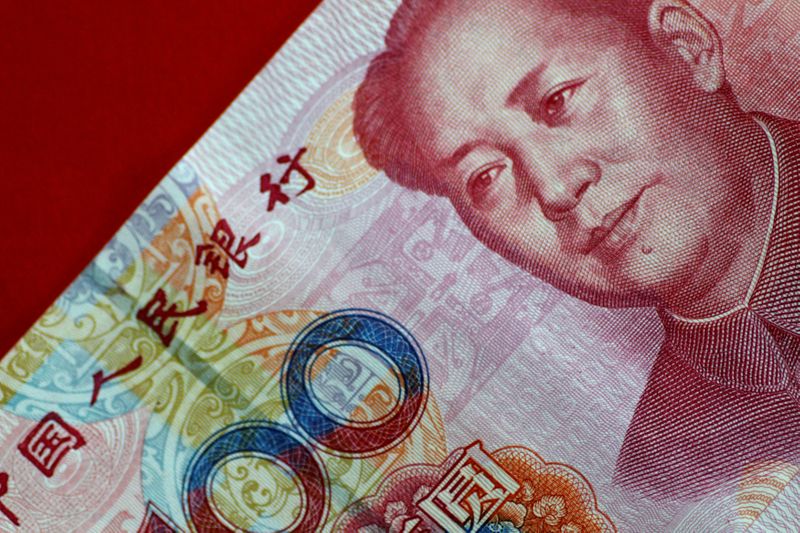BEIJING (Reuters) - China's foreign exchange reserves fell less than expected in February as the yuan weakened on fears over the fast spreading coronavirus epidemic and its severe impact on economic activity.
The country's foreign exchange reserves - the world's largest - fell $8.779 billion in February to $3.107 trillion, central bank data showed on Saturday.
Economists polled by Reuters had expected reserves would fall by $15.497 billion to $3.100 trillion, likely due to fluctuations in global exchange rates and the prices of foreign bonds that China holds.
Strict capital controls have helped China keep outflows under control over the past year despite a trade war with the United States and weakening economic growth at home.
But the yuan fell 0.78% against the dollar in February, its first monthly drop since August, while the dollar rose 0.77% as investors shifted money from virus-hit Asia into U.S. assets.
The virus outbreak and strict government measures used to contain its spread likely halved China's economic growth in the first quarter compared with the previous three months, triggering expectations for more interest rate cuts, according to the latest Reuters poll.
China held 62.64 million fine troy ounces of gold at the end of February, the same as at the end of January.

The value of China's gold reserves rose to $100.85 billion at the end of February from $99.24 billion at the end-January.